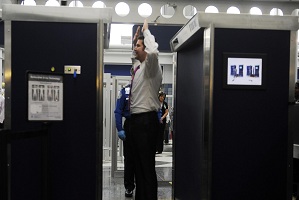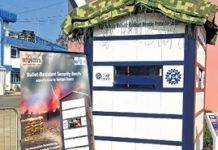Starting in April 2020, air travellers will be examined by body scanners at Indian airports, according to the aviation security regulator, which has directed airport operators to replace metal detectors with superior technology.In the directive, the Bureau of Civil Aviation Security (BCAS) asked airport operators and security agencies to install the devices at pre-embarkation security check points of all airports in a phased manner.
Body scanners detect objects being carried by a traveller without the need for physical contact such as frisking. The government communication does give air travellers the option of refusing to go through body scanners. In that case, the traveller will be subjected to a full pat-down search. Air travellers with medical conditions will also be exempt from security screening by body scanners. They will be screened using door frame metal detectors (DFMDs).
The operators of “hypersensitive” and “sensitive” airports (classified as so on security grounds) were asked to complete the installation by replacing metal detectors within one year . Other airports have been given a two-year deadline. Currently, out of 105 operational airports in India, 28 are classified as “hypersensitive,” including those in big cities like Delhi, Mumbai, Kolkata, Chennai and in conflict areas like Jammu and Kashmir and the Northeast while 56 airports are categorized as “sensitive”. The security of 61 airports is managed by the Central Industrial Security Force (CISF).
Officials said the installation of body scanners will counter the threat of smuggling of explosives and other banned articles being taken on board commercial aircraft. Currently, body scanners are used at airports in the US, the UK, Russia and a few other European countries.
Body scanners can detect both metallic and non-metallic items concealed on the body underneath clothing, the BCAS said, adding: “Terrorist incidents have forced state authorities to take additional security measures to protect civil aviation from potential attacks, including deploying of advanced technologies aimed at detecting threats of varying complexity”. Once the scanners are in place, “10% of the passengers, cleared by the body scanner system, shall be randomly searched. The physical search will include full pat-down search,” the circular said.








